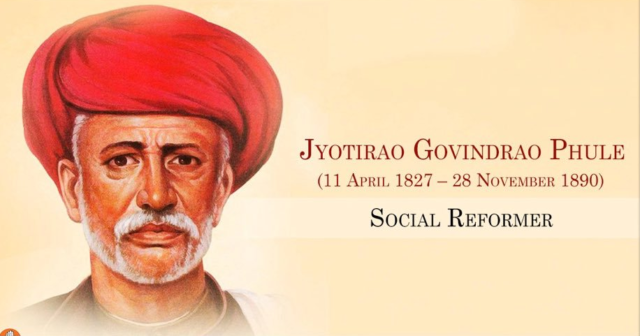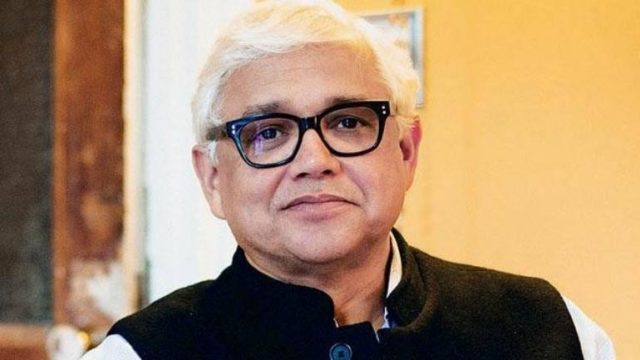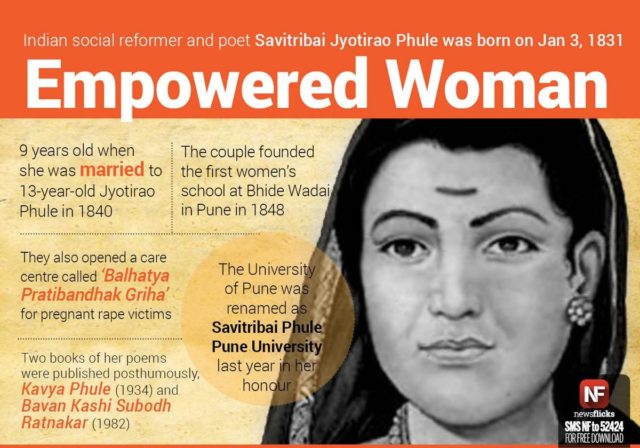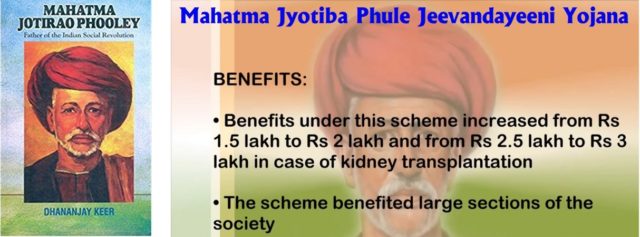PREVIOUS
Jyotirao Phule
June 14 , 2019
2393 days
47658
0
- Long before Mahatma Gandhi was given the title of Mahatma, there was another social reformer on whom the title of Mahatma was bestowed.
- Jyotirao Govindrao Phule was a thinker and a writer.

- He was known as Mahatma Phule, Jyotiba Phule, Jotiba Phule, Jotirao Phule.
- Phule was given the title of Mahatma on May 11, 1888, by Vithalrao Krishnaji Vandekar, a Maharashtrian social activist.
- His work is related mainly to eradication of untouchability and caste system, emancipation and empowerment of women, reform of Hindu family life.
- Phule is considered as one of the most prominent personalities who brought social reforms in Maharashtra.
- Along with his wife, Savitribai Phule, he is regarded as pioneers of women’s education in India.
- His wife Savitri Bai Phule was also a social worker.
- She is known as the first woman teacher of India and the first leader of the women liberation movement.
Personal Life
- Jyotirao Govindrao Phule was born in 1827 in Satara district of Maharashtra.
- His father was Govindrao and mother was Chimnabai.
- Jyotirao's family belonged to 'mali' caste and their original title was ‘Gorhay’.
- Jyotirao's father and uncles served as florists, so the family came to be known as `Phule'.
- He was married at the age of 13, to a girl Savitri Bai of his community.

- He encouraged and helped his wife Savitribai to read and write.
- He was persuaded to attend the local Scottish Mission High School, from where he completed his English schooling in 1847.
- There, he met Sadashiv Ballal Govande, a Brahmin, who remained his close friend throughout his life.
- Apart from being a social activist and reformer, Phule was also a businessman.
- He was also a cultivator and contractor for the Municipal Corporation.
- He also became the municipal commissioner of the Poona municipality in 1876 and served till 1883.
Social Reforms
- He realized that lower castes and women were the most disadvantaged sections of society and only education can emancipate them.
- Phule was a strong critique of child marriage as well as he also worked for widow remarriage.
- The couples were the first native Indians to open the first indigenously-run school for girls in India in August 1848 at Pune in Maharashtra.
- Later, the Phules started schools for children from the then untouchable castes such as Mahar and Mang.
- In 1863, he opened a home for pregnant Brahmin widows to give birth in a safe and secure place.
- He opened an orphanage home to avoid infanticide. In this regard, he is believed to be the first Hindu to start an orphanage for the unfortunate children.
- In 1868, Jyotirao decided to construct a common bathing tank outside his house to exhibit his embracing attitude towards all human beings and wished to dine with everyone, regardless of their caste.
- In 1873, Phule founded the Satyashodhak Samaj, or the Society of Seekers of Truth, for the rights of depressed classes, to denounce the caste system and to spread rational thinking.
- His wife Savitribai became the head of the women’s section.

- Due to the struggle of Jyoti Phule and his organization Satyashodhak Samaj because of which the government passed the Agriculture Act.
- A Pune-based newspaper, Deenbandhu, provided the voice for the views of the Samaj.
- Jyotirao Phule is credited with introducing the Marathi word Dalit, meaning broken or crushed to describe those who belonged to lower caste and outside the traditional caste or varna system.
- This term was later popularized in the 1970s by the Dalit Panthers and also found a place in literature.
Savitribai Phule (3 January 1831 – 10 March 1897)
- She worked to abolish the discrimination and unfair treatment of people based on caste and gender.
- She is regarded as an important figure of the social reform movement in Maharashtra.
- Savitribai and Jotirao had no children of their own, but they adopted Yashawantrao, a son born to a Brahmin widow.

- She is regarded as the first female teacher of India and headmistress.
- But, at the time of her marriage, Savitribai Phule had not been educated because Brahmins forbade it for people of her low caste and gender.
- According to government records, Jotirao was responsible for educating Savitribai at their home.
- Together with her husband, she taught children from different castes and opened a total of 18 schools.
- Fatima Begum Sheikh, a close friend of Savitribai, was the first Muslim woman teacher of India.
- Earlier Fathima went along with Savitribai to the Normal School and they both graduated together.
- Savitribai published Kavya Phule in 1854 and Bavan Kashi Subodh Ratnakar in 1892, and also a poem entitled "Go, Get Education".
- She established the Mahila Seva Mandal to raise awareness for issues concerning women's rights.
- Savitribai died a heroic death trying to save the son of Pandurang Babaji Gaekwad.

Last stage
- In 1888, Jyotiba suffered a stroke and was rendered paralyzed.
- On 28 November 1890 he passed away at Pune in the age of 63.
His Works
- He has written more than 16 books including poems and plays.
- The most famous of his books were Tritiya Ratna (1855), Gulamgiri (1873), Shetkarayacha Aasud, or Cultivator’s Whipcord (1881), Satyashodhak Samajokt Mangalashtakasah Sarva Puja-vidhi (1887) and many more.
- The most famous one among them was Gulam Giri which he dedicated to the people of America who were abolishing slavery.
- He wrote dramas like ‘Satsar’ Ank 1 and 2, which were enacted under his directives to spread awareness against social injustice.
Legacy
- A biography of Jyotiba was penned by Dhananjay Keer in 1974 titled, ‘Mahatma Jyotibha Phule: Father of Our Social Revolution’.

- The Mahatma Phule Museum in Pune was set-up in honour of the great reformer.
- The Government of Maharashtra introduced the Mahatma Jyotiba Phule Jeevandayeeni Yojana which is a cashless treatment scheme for poor.
Ideologies
- He was greatly influenced by Thomas Paine’s book Rights of Man.
- Phule considered the Aryans as a barbaric race who suppressed the indigenous people and instituted the caste system as a framework for subjugation and ensure the pre-eminence of the Brahmins.
- Jyotiba Phule devoted his entire life for the liberation of untouchables from the exploitation of Brahmins.
- He also attacked the Vedas and considered them to be a form of false consciousness.
- He outlined Puja protocols that the lower caste people were not allowed to learn.
- He opposed Brahminism and started marriage ceremonies without any Brahmins and later it also got recognition from the Bombay High Court.
- He had similar views for the Muslim conquest of India.
- He considered the British as relatively enlightened and liberal.
- His work and awareness campaigns influenced and inspired Ambedkar and Gandhi, who took up these issues further.
- Phule breathed his last in 1890 and shall it be termed as co-incidence that Ambedkar was born in 1891.
- - - - - - - - - - - - - - -
Leave a Reply
Your Comment is awaiting moderation.


